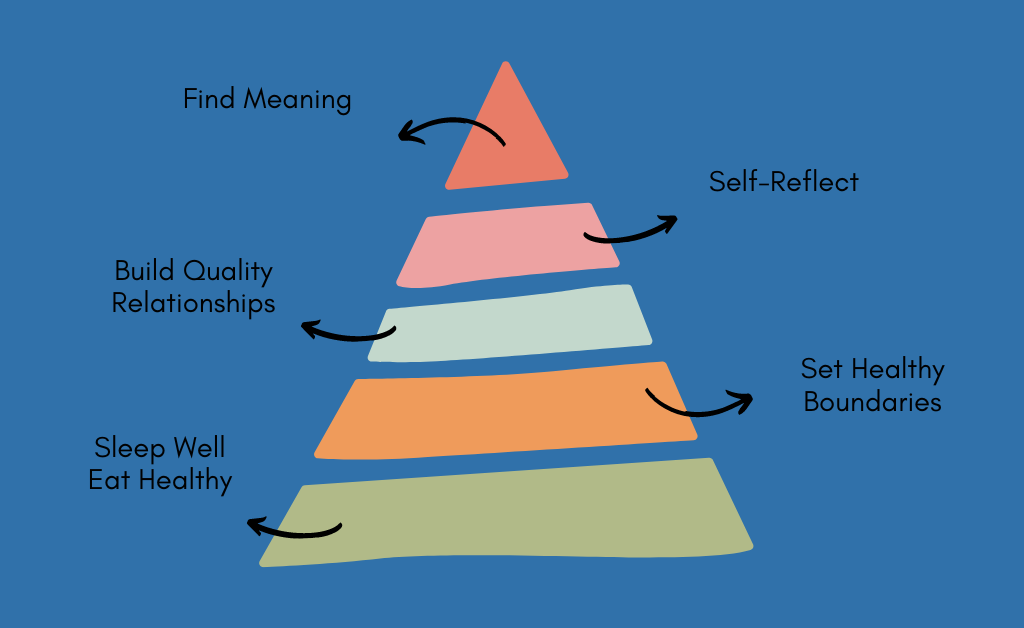Posts by Christopher L. Heffner, PsyD, PhD
Modernizing Maslow’s Hierarchy through the Lens of Self-Care
Abraham Maslow (1908-1970) is one of the founders of Humanistic Psychology. Along with Carl Rogers (1902-1987), Maslow stressed the importance of looking at the whole person rather than reducing individuals to a list of symptoms or diagnoses. Both also placed a central focus on the concept of self-actualization, or the belief that humans possess an…
Read MoreWe are More Lonely than Ever. Find out Why and How to Counter It.
We are more connected and more lonely than ever. And this seems to be true across sex, age, race, and income. The COVID-19 pandemic has played a significant role in fostering disconnection among individuals, leading many of us to be less inclined to re-engage socially at the same level as before. Loneliness doesn’t typically travel…
Read MoreThe Education Gender Gap: APA Task Force looks at How to Help Boys Succeed in School
The April/May, 2023 edition of the Monitor on Psychology, the bimonthly magazine of the American Psychological Association, led with a cover story about helping boys and young men succeed in the classroom (Abrams, 2023). The article was introduced with a bold statement: “At school, by almost every metric, boys of all ages are doing worse…
Read MoreMedia Literacy and Modern Technology
Media Psychology Technology, including social and other forms of media, is often considered neutral – its value is determined by how we use it (see Social Media is Related to Both Ill-Being and Well-Being). Finding a social group online that understands you can be a positive, life-changing, and even life-saving experience. However, becoming consumed with…
Read MoreDoomscrolling: The Ultimate Negative Flow State and Four Ways to Counter It
First, A Little Psychology I’ve written before about social media use and how it can be both helpful and harmful. The article, Is Social Media Reflecting Our Pathology or Adding to It?, concluded that social media does both. The trick to making social media a positive experience is understanding how their algorithms work. The first…
Read MoreFour Resilience Skills To Counter Depression and Unhealthy Stress
Stress Is Good Stress can be bad but it can also be good. And even when it is bad, it can still be good. Let me explain. While we typically think of stress as a negative, there is a type of stress called eustress that is considered positive and healthy. Eustress is the stress we…
Read MoreIs Social Media Reflecting Our Pathology or Adding to It?
Social Media and Mental Health Social media has become an open forum for discussing and sharing stories about mental health. For many, this has been positive, perhaps even a lifesaving, as it helps people connect with others who have similar experiences and find places where one does not feel alone. According to an article in…
Read MoreSocial Media Use is Related to Both Ill-Being and Well-Being
Social media use and mental health seems to have a love/hate relationship. Brailovskaia and Margraf (2016) conducted a large study comparing users and non-users of Facebook on various mental health variables. While they found that users were significantly more likely to score higher on scales of narcissism, they also scored higher on extroversion and self-esteem.…
Read MorePost-Traumatic Growth: An Introduction
We know that psychological trauma exists and that it can have devastating effects on individuals, families, and communities. Trauma has impacted us since humans existed, and according to the National Center for PTSD at the US Department of Veterans Affairs, it has impacted us in a similar fashion across time. When first introduced in the…
Read MoreSocial Media and Self-Esteem
A recent article published in Science Direct looked at the association between social media use and mental health among adolescents. The impact of social media on mental health is certainly not a new topic. Neil Petersen wrote about envy as a mediator of mental illness among social network users, how social media affects life satisfaction…
Read More








